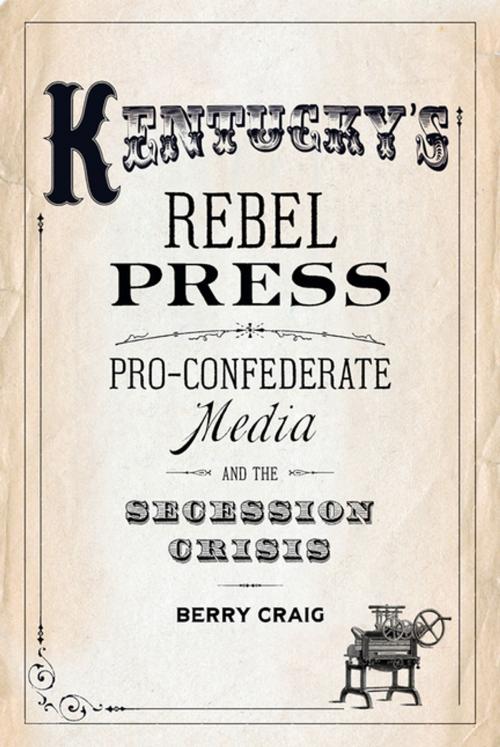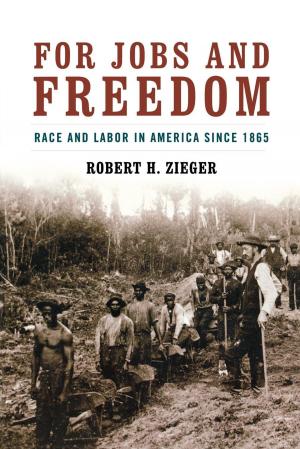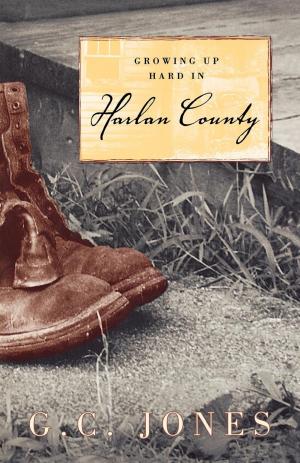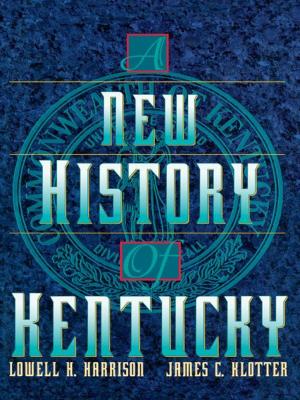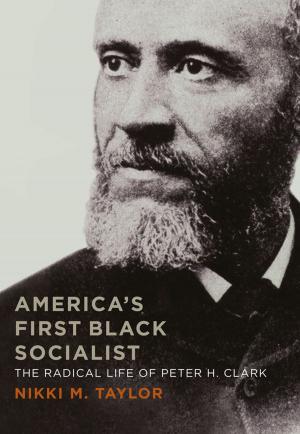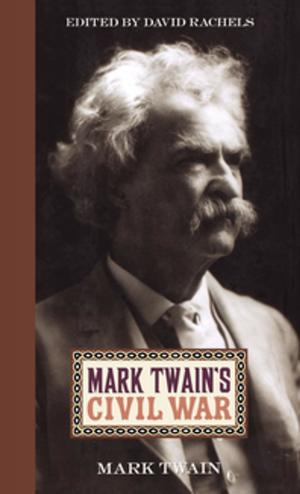Kentucky's Rebel Press
Pro-Confederate Media and the Secession Crisis
Nonfiction, Reference & Language, Language Arts, Journalism, History, Americas, United States, Civil War Period (1850-1877)| Author: | Berry Craig | ISBN: | 9780813174617 |
| Publisher: | The University Press of Kentucky | Publication: | December 15, 2017 |
| Imprint: | The University Press of Kentucky | Language: | English |
| Author: | Berry Craig |
| ISBN: | 9780813174617 |
| Publisher: | The University Press of Kentucky |
| Publication: | December 15, 2017 |
| Imprint: | The University Press of Kentucky |
| Language: | English |
Throughout the Civil War, the influence of the popular press and its skillful use of propaganda was extremely significant in Kentucky. Union and Confederate sympathizers were scattered throughout the border slave state, and in 1860, at least twenty-eight of the commonwealth's approximately sixty newspapers were pro-Confederate, making the secessionist cause seem stronger in Kentucky than it was in reality. In addition, the impact of these "rebel presses" reached beyond the region to readers throughout the nation.
In this compelling and timely study, Berry Craig analyzes the media's role in both reflecting and shaping public opinion during a critical time in US history. Craig begins by investigating the 1860 secession crisis, which occurred at a time when most Kentuckians considered themselves ardent Unionists in support of the state's political hero, Henry Clay. But as secessionist arguments were amplified throughout the country, so were the voices of pro-Confederate journalists in the state. By January 1861, the Hickman Courier, Columbus Crescent, and Henderson Reporter steadfastly called for Kentucky to secede from the Union.
Kentucky's Rebel Press also showcases journalists who supported the Confederate cause, including editor Walter N. Haldeman, who fled the state after Kentucky's most recognized Confederate paper, the Louisville Daily Courier, was shut down by Union forces. Exploring an intriguing and overlooked part of Civil War history, this book reveals the importance of the partisan press to the Southern cause in Kentucky.
Throughout the Civil War, the influence of the popular press and its skillful use of propaganda was extremely significant in Kentucky. Union and Confederate sympathizers were scattered throughout the border slave state, and in 1860, at least twenty-eight of the commonwealth's approximately sixty newspapers were pro-Confederate, making the secessionist cause seem stronger in Kentucky than it was in reality. In addition, the impact of these "rebel presses" reached beyond the region to readers throughout the nation.
In this compelling and timely study, Berry Craig analyzes the media's role in both reflecting and shaping public opinion during a critical time in US history. Craig begins by investigating the 1860 secession crisis, which occurred at a time when most Kentuckians considered themselves ardent Unionists in support of the state's political hero, Henry Clay. But as secessionist arguments were amplified throughout the country, so were the voices of pro-Confederate journalists in the state. By January 1861, the Hickman Courier, Columbus Crescent, and Henderson Reporter steadfastly called for Kentucky to secede from the Union.
Kentucky's Rebel Press also showcases journalists who supported the Confederate cause, including editor Walter N. Haldeman, who fled the state after Kentucky's most recognized Confederate paper, the Louisville Daily Courier, was shut down by Union forces. Exploring an intriguing and overlooked part of Civil War history, this book reveals the importance of the partisan press to the Southern cause in Kentucky.
